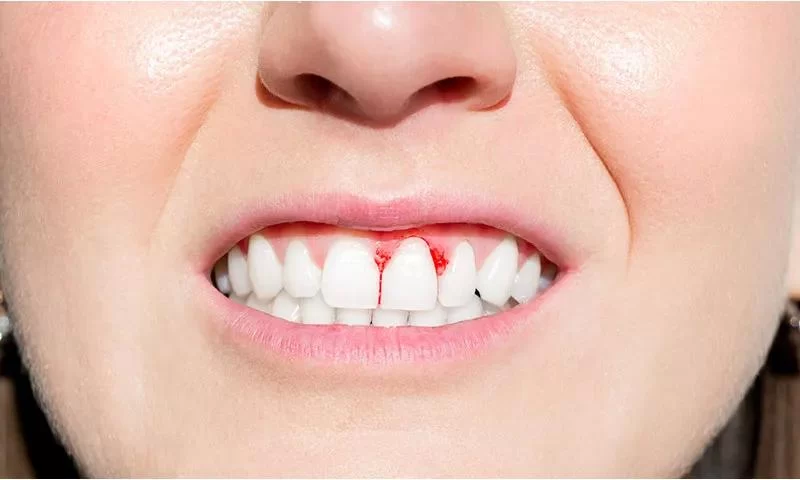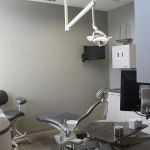
Why Are Your Gums Bleeding?
If you've ever noticed blood when brushing or flossing your teeth, you're not alone. Bleeding gums are a common issue that many people face. As someone who's dealt with this firsthand, I know how alarming it can be to see blood in the sink after brushing. However, understanding the cause of this issue is the first step toward finding a solution. The main culprit behind bleeding gums is often gingivitis, an early form of gum disease. It occurs when plaque builds up along the gumline, causing irritation and inflammation. While gingivitis is common, it can progress to more severe gum disease if left untreated, so it's crucial to address the problem early on.
How Can You Stop Bleeding Gums?
Fortunately, there are several strategies you can use to stop your gums from bleeding and improve your overall oral health. Here are some tried-and-tested methods that have worked for me and countless others:
1. Improve Your Brushing Technique
One of the main reasons your gums might be bleeding is improper brushing. Using a hard-bristled toothbrush or brushing too aggressively can damage your gums and lead to bleeding. I personally switched to a soft-bristled toothbrush and noticed a significant reduction in gum irritation. Brushing gently in a circular motion helps to clean your teeth without causing harm to your gums. It’s also a good idea to brush for at least two minutes, twice a day, to ensure you're thoroughly cleaning all surfaces of your teeth and gums.
2. Floss Daily (But Be Gentle!)
Flossing is essential for gum health, but many people, including myself, can be tempted to floss too forcefully, leading to gum injury and bleeding. I learned that using a gentle sawing motion with the floss, rather than snapping it between teeth, can prevent damage to the gums. If you're new to flossing or find it difficult, consider trying an interdental brush or a water flosser, which can be gentler and more effective at cleaning between your teeth.
3. Rinse with an Antiseptic Mouthwash
One of the easiest ways to combat bleeding gums is by using an antiseptic mouthwash. I’ve found that using a mouthwash containing chlorhexidine or another antibacterial agent helps to reduce plaque buildup and inflammation. These mouthwashes can target the bacteria that contribute to gum disease and promote overall gum health. It's important to follow the instructions on the bottle to avoid overuse, as excessive use can sometimes cause oral side effects.
4. Stay Hydrated
Many people don’t realize that dehydration can also contribute to gum problems, including bleeding. I’ve personally experienced a noticeable improvement in my gum health simply by drinking more water. Staying hydrated helps to keep your mouth moist, flush out bacteria, and promote saliva production, which naturally protects your gums. Aim to drink at least eight glasses of water per day to support your overall oral health.
5. Make Sure You’re Getting Enough Vitamin C
Did you know that a lack of vitamin C can lead to gum bleeding? When I noticed my gums bleeding more frequently, I realized I wasn’t eating enough foods rich in this essential nutrient. Vitamin C is vital for collagen production, which helps keep your gums strong and healthy. Incorporating more fruits and vegetables like oranges, strawberries, bell peppers, and broccoli into my diet helped reduce the bleeding significantly. If you’re concerned about your vitamin C intake, you can also take a supplement to ensure you're getting enough.
6. Visit Your Dentist Regularly
While home care is crucial for gum health, regular dental check-ups are just as important. I make it a point to see my dentist at least twice a year for professional cleanings and exams. Your dentist can identify early signs of gum disease and provide treatments like scaling and root planing if necessary. If your bleeding gums persist despite your best efforts at home, it's time to consult with a dentist to rule out any underlying issues like periodontitis, which requires more advanced treatment.
Can You Prevent Bleeding Gums?
Prevention is always better than cure, and fortunately, bleeding gums can often be prevented by maintaining good oral hygiene habits. Here are a few additional tips that I’ve found helpful in preventing gum issues:
1. Use a Soft-Bristled Toothbrush
Avoid hard-bristled toothbrushes, which can damage your gums. Instead, choose a soft-bristled brush to reduce the risk of bleeding while brushing.
2. Don’t Skip Flossing
Flossing helps remove plaque between your teeth, where your toothbrush can’t reach. Make sure to floss daily to keep your gums healthy.
3. Avoid Smoking
Smoking is one of the biggest contributors to gum disease. If you’re a smoker, quitting can drastically improve the health of your gums and reduce the risk of bleeding.
4. Eat a Balanced Diet
Consuming a variety of nutrient-rich foods supports the health of your gums. Focus on a diet that includes plenty of fresh fruits, vegetables, whole grains, and lean proteins.
When Should You See a Dentist?
If your gums continue to bleed despite your best efforts to care for them at home, it’s time to schedule a visit to your dentist. Persistent bleeding can indicate more serious conditions, such as periodontal disease, that may require professional treatment. During a dental exam, your dentist can identify the root cause of the bleeding and recommend the best treatment options.
Dealing with bleeding gums can be frustrating, but with the right approach, it’s possible to stop the bleeding and maintain healthy gums for life. By adopting the right oral hygiene habits, paying attention to your diet, and seeking professional care when necessary, you can take control of your gum health and prevent future problems.







 Dr. David S. McGee, DMD5.0 (10 review)
Dr. David S. McGee, DMD5.0 (10 review) Dr. David Scharf - Long Island Periodontist & Dental Implants4.0 (234 review)
Dr. David Scharf - Long Island Periodontist & Dental Implants4.0 (234 review) Harbor Cove Dental5.0 (191 review)
Harbor Cove Dental5.0 (191 review) Perth Amboy Pediatric Dentistry & Orthodontics4.0 (455 review)
Perth Amboy Pediatric Dentistry & Orthodontics4.0 (455 review) All Star Dental Clinic4.0 (322 review)
All Star Dental Clinic4.0 (322 review) Coker Dental: Dr. William L. Coker, DDS4.0 (25 review)
Coker Dental: Dr. William L. Coker, DDS4.0 (25 review) The Importance of Oral Health Education During Pregnancy for a Healthy Pregnancy
The Importance of Oral Health Education During Pregnancy for a Healthy Pregnancy Best Tips for Brushing Your Teeth Properly for Healthy Gums: Essential Techniques for Oral Health
Best Tips for Brushing Your Teeth Properly for Healthy Gums: Essential Techniques for Oral Health Why Skipping Dental Checkups Can Lead to Bigger Oral Health Problems
Why Skipping Dental Checkups Can Lead to Bigger Oral Health Problems Advantages of Porcelain Dental Restorations
Advantages of Porcelain Dental Restorations How Can Diabetes Cause Tooth and Gum Problems? Preventing and Managing Oral Health Issues
How Can Diabetes Cause Tooth and Gum Problems? Preventing and Managing Oral Health Issues Healthy Habits for Promoting Good Oral Health and Hygiene: Tips for a Healthy Smile
Healthy Habits for Promoting Good Oral Health and Hygiene: Tips for a Healthy Smile